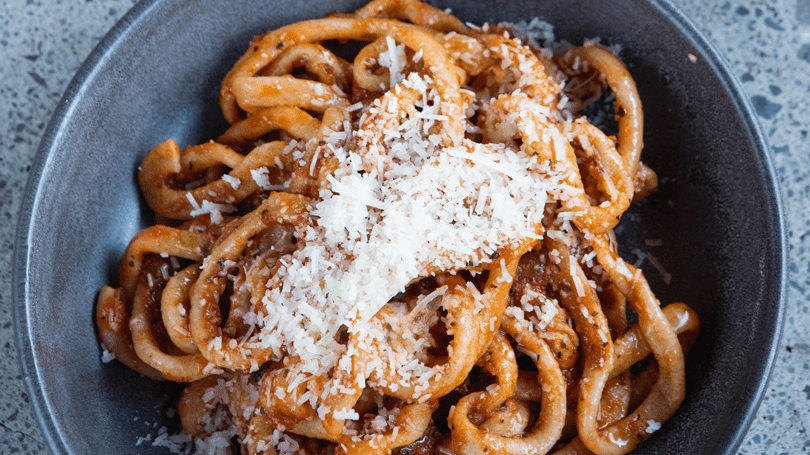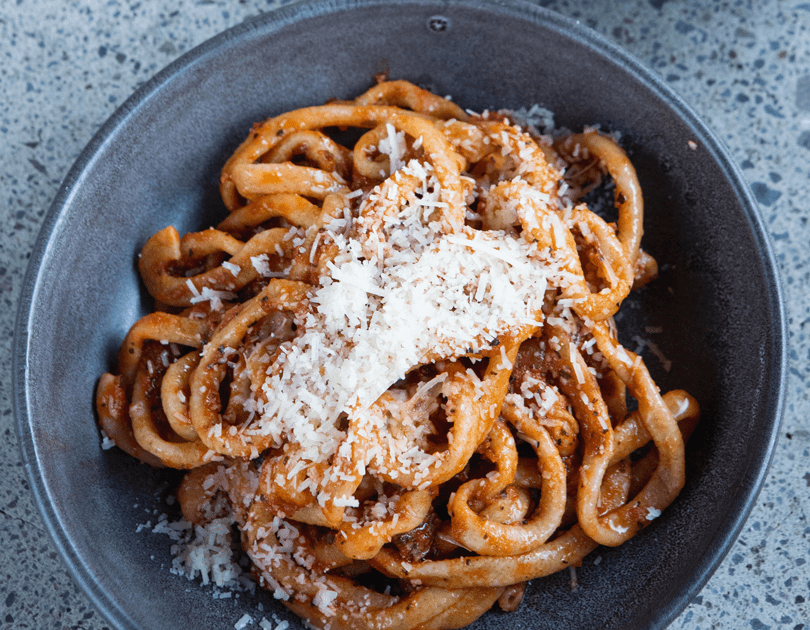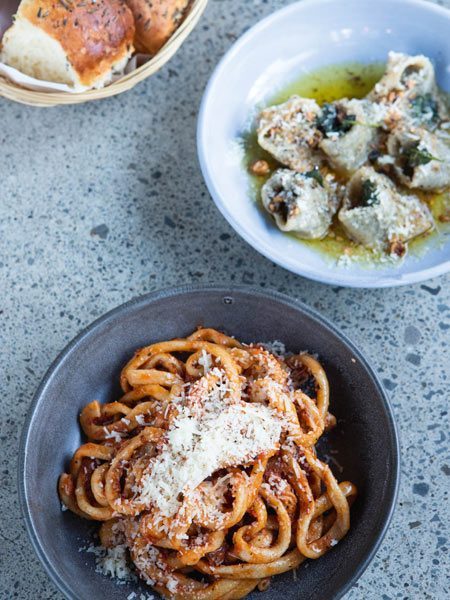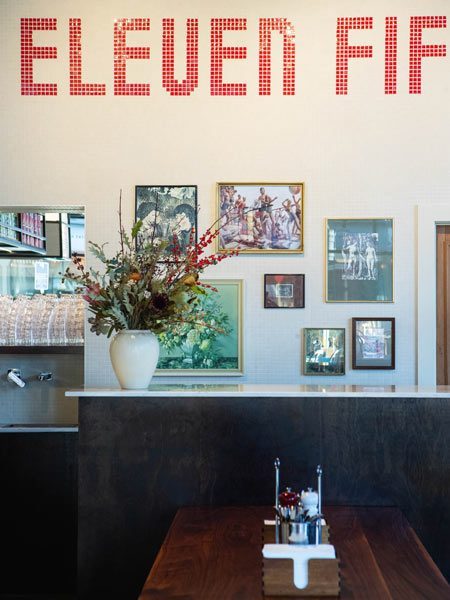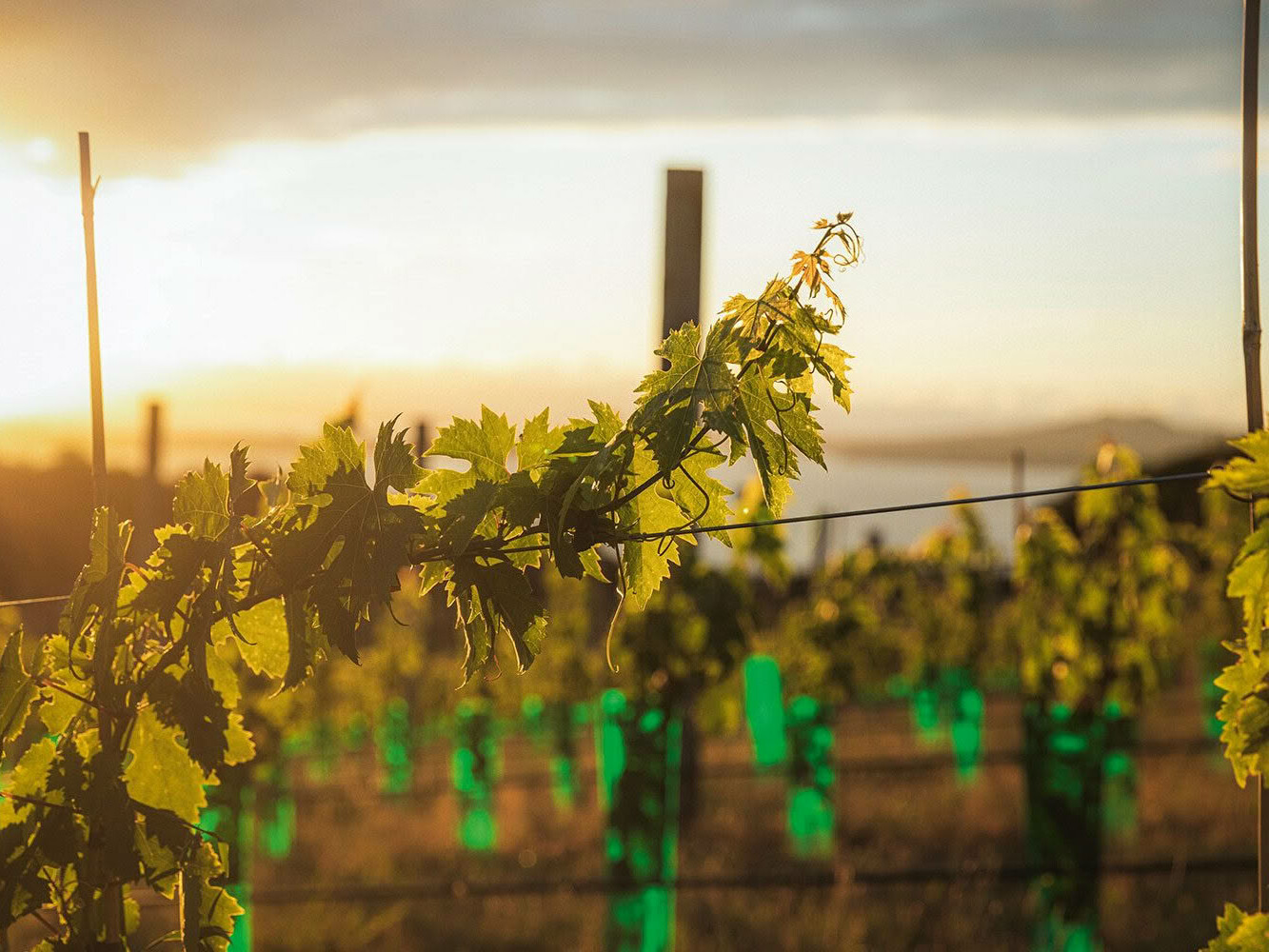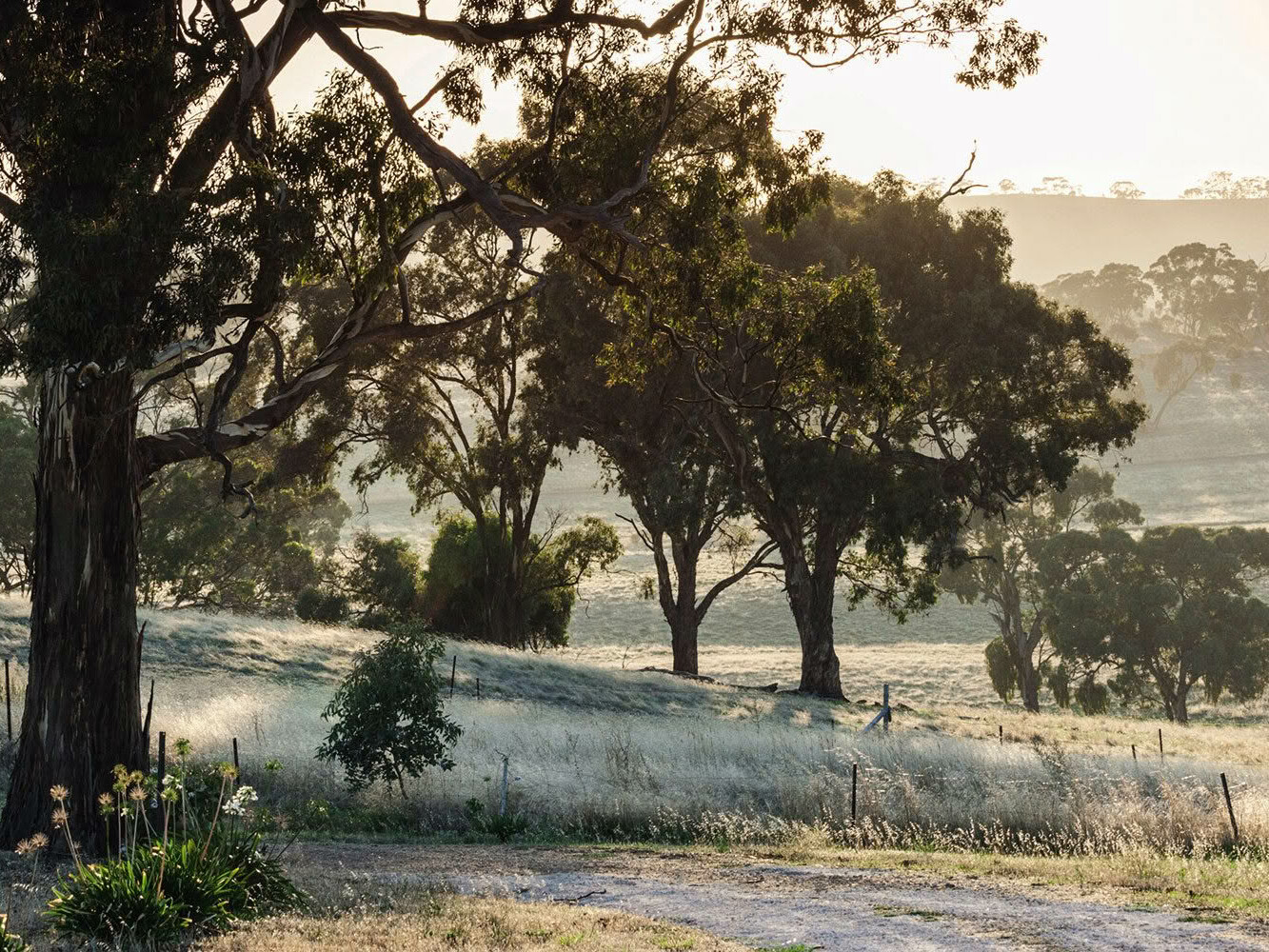While everybody has heard of pizzerias, the concept of a dedicated pastaria is fairly novel, to Wellingtonians at least.
Formerly Ernesto’s café, 1154 boasts a newly steel-reinforced, fully earthquake-strengthened dining room, its newly laid tiles and mosaics emblematic of the casual style of the place. It’s pitched somewhere between a takeaway bar and a restaurant: you order and pay at the counter and help yourself to water and to the cutlery and paper napkins in buckets at the tables, one of which is communal.
This pastaria has arisen essentially from the need not to be in direct competition with Scopa, the pizzeria/ cafe directly opposite on Cuba Street, which is also owned by the Bresolin brothers (Leonardo and Lorenzo) and their business partners.
The menu at 1154 Pastaria simply states ‘Pasta’. Sides are playfully called ‘Not Pasta’. Accordingly, each morning chef/co-owner Lucas Tock toils at a bench on the mezzanine floor to the rear, rolling and extruding fresh pasta, using South Island flour so coarsely ground it gives the finished product an almost wholemeal appearance.
Being fresh allows the pasta to be cooked on the firm side of al dente, which takes many customers by surprise. However, the aim here is not to shock or challenge but rather to offer the best possible versions of all the classic pasta dishes we all thought we knew only too well, such as rigatoni pomodoro and fettuccine carbonara.
Before you decry spaghetti puttanesca as belonging to the era of red-checked tablecloths, breadsticks and candles in chianti bottles, do sample this version, its sauce a harmonious melding of quality capers, Ortiz anchovies, San Marzano tomatoes and grana padano.
Likewise, pappardelle alla bolognese takes the sauce back to the original ragu, mixing pork belly and pancetta through the slow-cooked beef mince.
Tortelloni are great pillows filled with spinach and ricotta, large enough to cut in half for eating. They’re bathed in the same sage brown butter that Lucas would have prepared back in the day as head chef at Thorndon’s Maria Pia Trattoria. The topping is chopped hazelnut, high-roasted just short of burning point to ensure maximum caramelisation.
The woman at the next table complained to me about the excessive oiliness of her food, but I say ‘each to their own’: for me, one big attraction of the Giardiniera (48-hour pickled seasonal vegetables) is that they are swimming in a positively profligate amount of olive oil, sufficient to dunk every mouthful. Another attraction is the crunchiness of the raw baby turnip, carrot and cauli.
For nostalgia’s sake you might indulge in that old Italian-american classic, canestrini alfredo. Since it’s made with short basket pasta very similar to macaroni, co-owner and maitre d’ Kieran Wallace points out it’s the nearest thing on their menu to macaroni cheese. But this is a chastened, health-concerned, post-eighties iteration, which reduces the cream to a light coating of the pasta. Since the only other ingredients seem to be parmesan, garlic and chopped spring onion, this alfredo really does call for the optional chicken at $5 extra, if only to render the dish truer to the naff excesses of the Eighties.
Although 1154 substitute grana padana for pecorino in their bucatini amatriciana, they do retain the essential authenticity and depth of flavour by using guanciale (cured pork cheek) from Modena, Italy. It’s as well to fashion a bib from one of 1154’s oversized paper napkins, because when you go to coil a length of the hollow bucatini around your fork, it has a habit of unravelling like an errant garden hose, spattering tomato sauce over your best shirt.
Aside from a glass of the house red, white or sparkling, the only other wine options here are six by the bottle. However, each day they do uncork a special red and a white to sell by the glass. As luck might have it, that red would be the Saeti Rosso Dell’emilia, effectively a quality-driven, organic lambrusco without the bubbles. Rich, juicy and brimming with savoury, meaty, cured pork flavours, it’s absolutely perfect with the bucatini amatriciana.
You might think 1154 is named for its Cuba Street address, but actually the reference is to the year 1154 AD, when the Arab geographer to the King of Sicily recorded history’s first clear reference to dried pasta.
It’s a date worth storing away to use as ammunition against those who would try to tell you that in the 13th century, Marco Polo introduced pasta to Italy from China.
ADDRESS: Cnr Cuba & Ghuznee Sts, Wellington
LUNCH & DINNER: 7 days Pasta
MAINS: $12 – $17
WEBSITE: 1154.co.nz
SCORE: 14.5 / 20

